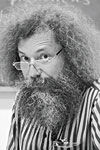The reform bill is currently in the state Duma, where it will receive its final reading next month. The signals from the Duma are inconclusive: although some members, including the speaker, Sergei Naryshkin, mentioned the possibility of returning the bill to the second-reading stage, where substantial amendments are possible, there have been no official statements along these lines.
The government has managed to achieve the seemingly impossible: it has brought Russian science together. Academic stalwarts who oppose any change (aside from an increase in the academy’s budget) have united with proponents of (reasonable) reform, long-time critics of the academy and scientists who normally run shy of politics. Despite summer vacations, some members of the scientific community are discussing the post-reform system, and others are planning meetings and strikes that aim to overturn the proposals. A meeting of all groups working on projects that relate to the reforms is scheduled for the end of August.
Some of the ideas being discussed seem more realistic than others. With its head firmly in the sand, the presidium of the academy has prepared a list of amendments to the bill that mainly aim at returning to the pre-reform status quo. Another working group, formed by the Scientific Council of the Ministry of Science (independent researchers who are largely critical of the reforms) and the Society of Scientific Researchers (an independent, informal society with free membership that is restricted only by a publications-based qualification) has offered other suggestions. These tackle fundamental issues such as whether Russian science should be arranged around institutes or laboratories, what the balance should be between guaranteed and grant-based funding, and whether academy research should be subject to international review. At their heart, these discussions debate whether the future of the academy is as a learned society, similar to the UK Royal Society, or as a Soviet-style ‘ministry of basic sciences’ that manages and funds its institutes.
“There is general agreement in Russia that change is overdue.”
One burning problem acknowledged by most of those working on possible alternatives to the government reform is the future working relationships among the academy, its institutes and a new agency set up by the proposed law to handle academy property. The bill provides no details and is unclear about whether this property includes the land, buildings and equipment that are directly used for research purposes. In particular, scientists worry that all purchases will need to be approved by bureaucrats with no understanding of science.
In the words of a famous Russian novel, what is to be done? A prerequisite for successful reform is the creation of a transparent funding system that also features regular international assessment of laboratories, institutes and large projects. A more strategic goal should be to mend the split between research and higher education. This should not be done by simply increasing the financing of universities at the cost of research institutes, but rather by encouraging the educational activity of institute researchers and the research activity of university professors. Specific grant-based support of joint projects between institutes and universities is also needed. The teaching load of university professors, which is currently much higher than that of professors in the West, must be decreased, and regular audits should cover not only the academy but also other research centres. Finally, Russia’s leaders need to understand that science cannot be expected to produce immediate results in the form of ‘innovations’, but instead needs to be judged on its own merits.
Ultimately, deep reform can be implemented only if the government has a popular mandate for change. This is not the case in Russia. Hence all reforms are met with distrust and a search for a hidden agenda. This distrust has been fuelled by a project to incorporate several physics institutes into the Kurchatov Institute, the head of which, Mikhail Kovalchuk, is widely believed to be a trusted adviser of President Vladimir Putin. The centre enjoys a steady, rich flow of finance, despite a scientific output that is much weaker than academic institutes. The Institute of Theoretical and Experimental Physics, formerly one of the top scientific institutions, all but ceased to function when it was incorporated into the Kurchatov Institute.
There is general agreement in Russia that change is overdue; even the new academy leadership acknowledges this. Forms of change separate from the unpopular government proposals could work. But it is unclear whether research in Russia can make the shift, given the current political climate and the academy’s systemic, deeply rooted problems.

